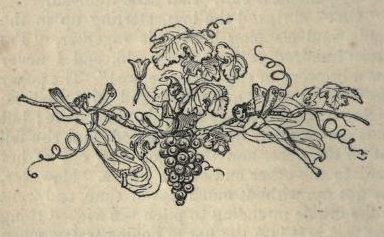
The Brewery of Egg-Shells It may be considered impertinent were I to explain what is meant by a changeling: both Shakspeare and Spenser have already done so and who is there unacquainted with the Midsummer Night's Dream and the Fairy Queen. Now Mrs. Sullivan fancied that her youngest child had been changed by "fairies theft," to use Spenser's words, and certainly appearances warranted such a conclusion; for in one night her healthy, blue-eyeed boy had become shrivelled up into almost nothing, and never ceased squalling and crying. This naturally made poor Mrs. Sullivan very unhappy; and all the neighbours, by way of comforting her, said, that her own child was, beyond any kind of doubt, with the good people, and that one of themselves had been put in his place. Mrs. Sullivan of course could not disbelieve what every one told her, but she did not wish to hurt the thing; for although its face was so withered, and its body wasted away to a mere skeleton, it had still a strong resemblance to her own boy: she therefore could not find it in her heart to roast it alive on the griddle, or to burn its nose off with the red hot tongs, or to throw it out in the snow on the road side, notwithstanding these, and several like proceedings, were strongly recommended to her for the recovery of her child. One day who should Mrs. Sullivan meet but a cunning woman, well known about the country by the name of Ellen Leah (or Grey Ellen). She had the gift, however she got it, of telling where the dead were, and what was good for the rest of their souls; and could charm away warts and wens, and do a great many wonderful things of the same nature. "You're in grief this morning, Mrs. Sullivan," were the first words of Ellen Leah to her. "You may say that, Ellen," said Mrs. Sullivan, and good cause I have to be in grief, for there was my own fine child whipped off from me out of his cradle, without as much as by your leave, or ask your pardon, and an ugly dony bit of a shrivelled up fairy put in his place; no wonder then that you see me in grief, Ellen." "Small blame to you, Mrs. Sullivan," said Ellen Leah; "but are you sure 't is a fairy?" "Sure !" echoed Mrs. Sullivan, " sure enough am I to my sorrow, and can I doubt my own two eyes? Every mother's soul must feel for me!" "Will you take an old woman's advice ?" said Ellen Leah, fixing her wild and mysterious gaze upon the unhappy mother; and, after a pause, she added, "but may be you'll call it foolish? " "Can you get me back my child, - my own child, Ellen?" said Mrs. Sullivan with great energy. "If you do as I bid you," returned Ellen Leah, "you'll know." Mrs. Sullivan was silent in expectation, and Ellen continued, " Put down the big pot, full of water, on the fire, and make it boil like mad; then get a dozen new laid eggs, break them, and keep the shells, but throw away the rest; when that is done, put the shells in the pot of boiling water, and you will soon know whether it is your own boy or a fairy. If you find that it is a fairy in the cradle, take the red hot poker and cram it down his ugly throat, and you will not have much trouble with him after that, I promise you." Home went Mrs. Sullivan, and did as Ellen Leah desired. She put the pot on the fire, and plenty of turf under it, and set the water boiling at such a rate, that if ever water was red hot-it surely was. The child was lying for a wonder quite easy and quiet in the cradle, every now and then cocking his eye, that would twinkle as keen as a star in a frosty night, over at the great fire, and the big pot upon it; and he looked on with great attention at Mrs. Sullivan breaking the eggs, and putting down the egg-shells to boil. At last he asked, with the voice of a very old man, " What are you doing, mammy?" Mrs.. Sullivan's heart, as she said herself, was up in her mouth ready to choke her, at hearing the child speak. But she contrived to put the poker in the fire, and to answer without making any wonder at the words, "I'm brewing, a vick," (my son.) "And what are you brewing, mammy?" said the little imp, whose supernatural gift of speech now proved beyond question that he was a fairy substitute. "I wish the poker was red," thought Mrs. Sullivan; but it was a large one, and took a long time heating: so she determined to keep him in talk until the poker was in a proper state to thrust down his throat, and therefore repeated the question. "Is it what I'm brewing, a vick," said she, you want to know?" "Yes, mammy: what are you brewing ?" returned the fairy. "Egg-shells, a vick," said Mrs. Sullivan. "Oh!" shrieked the imp, starting up in the cradle, and clapping his hands together, " I'm fifteen hundred years in the world, and I never saw a brewery of egg-shells before!" The poker was by this time quite red, and Mrs. Sullivan seizing it, ran furiously towards the cradle; but somehow or other her foot slipped, and she fell flat on the floor, and the poker flew out of her hand to the other end of the house. However, she got up, without much loss of time, and went to the cradle intending to pitch the wicked thing that was in it into the pot of boiling water, when there she saw her own child in a sweet sleep, one of his soft round arms rested upon the pillow his features were as placid as if their repose had never been disturbed, save the rosy mouth which moved with a gentle and regular breathing. Who can tell the feelings of a mother when she looks upon her sleeping child? Why should I, therefore, endeavour to describe those of Mrs. Sullivan at again beholding her long lost boy? The fountain of her heart overflowed with the excess of joy - and she wept! - tears trickled silently down her cheeks, no? did she strive to check them - they were tears not of sorrow, but of happiness.
Thomas Crofton Croker (1798 – 1854), irischer Alterstumforscher, Märchensammler
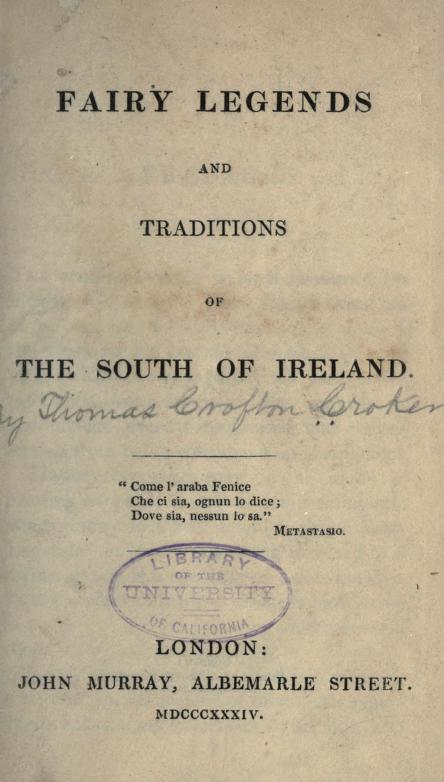
aus: „Fairy Legends and Tradtions of The South of Irland“ (Märchenlegenden und Traditionen Südirland) von Thomas Crofton Makler. (Thomas Crofton Croker). Illustrationen von ? . Verlag: John Murray, Albemarle Street, 1834. Page 31- 32
Erstveröffentlichung von „Fairy Legends and Traditions of the South of Ireland“, London, 1825
„Sammlung irischer Märchen“, Übertragung ins Deutsche von Friedrich Fleischer. Veröffentlicht von den Brüder Grimm , Erstveröffentlichung 1826.
auf deutsch zu lesen „Die Brauerei von Eierschalen„

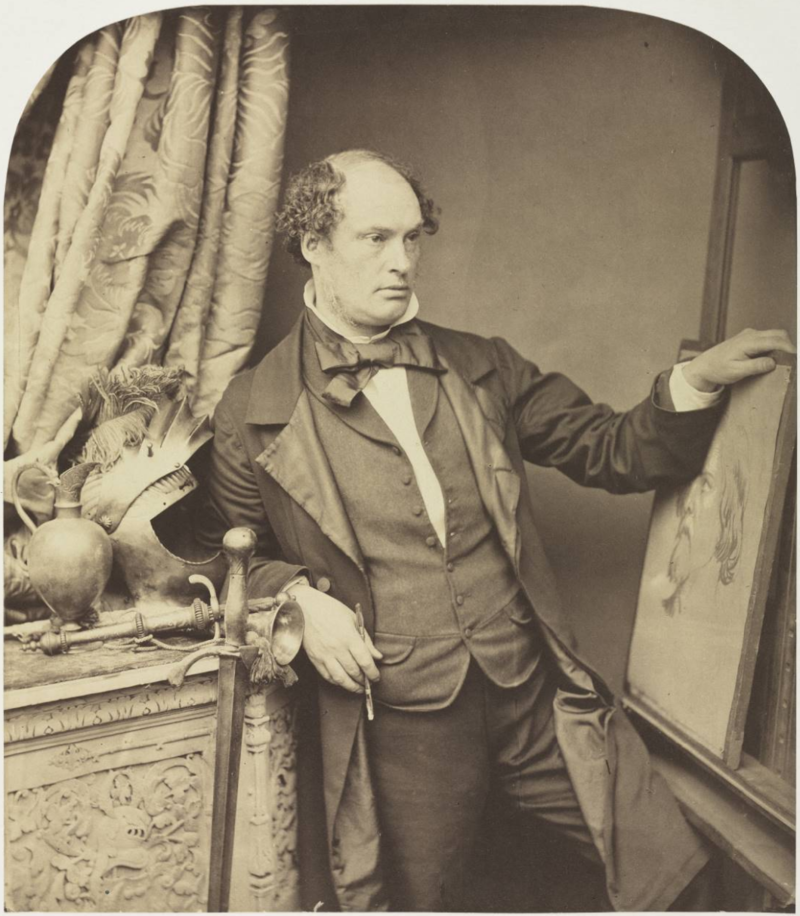
Porträt von Daniel Maclise (1806 – 1870)
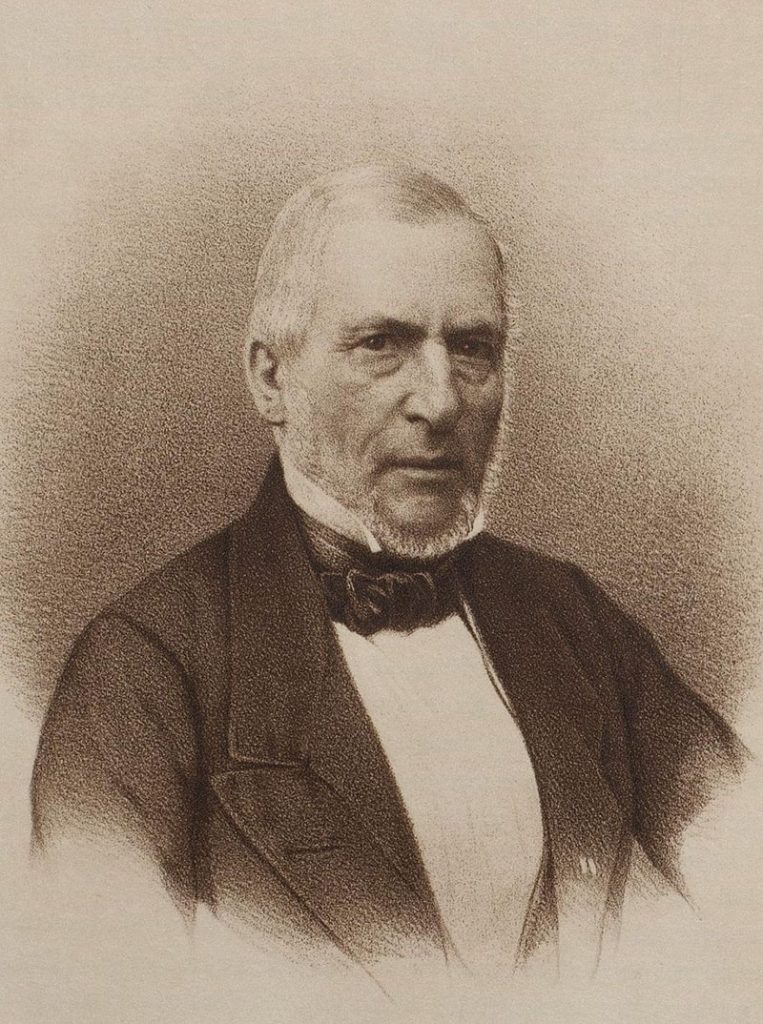
Foto: Friedrich Fleischer (1794 – 1863)

Bildnis: Thomas Crofton Croker (1798 – 1854)
Illustration von Daniel Maclise (1806 – 1870)

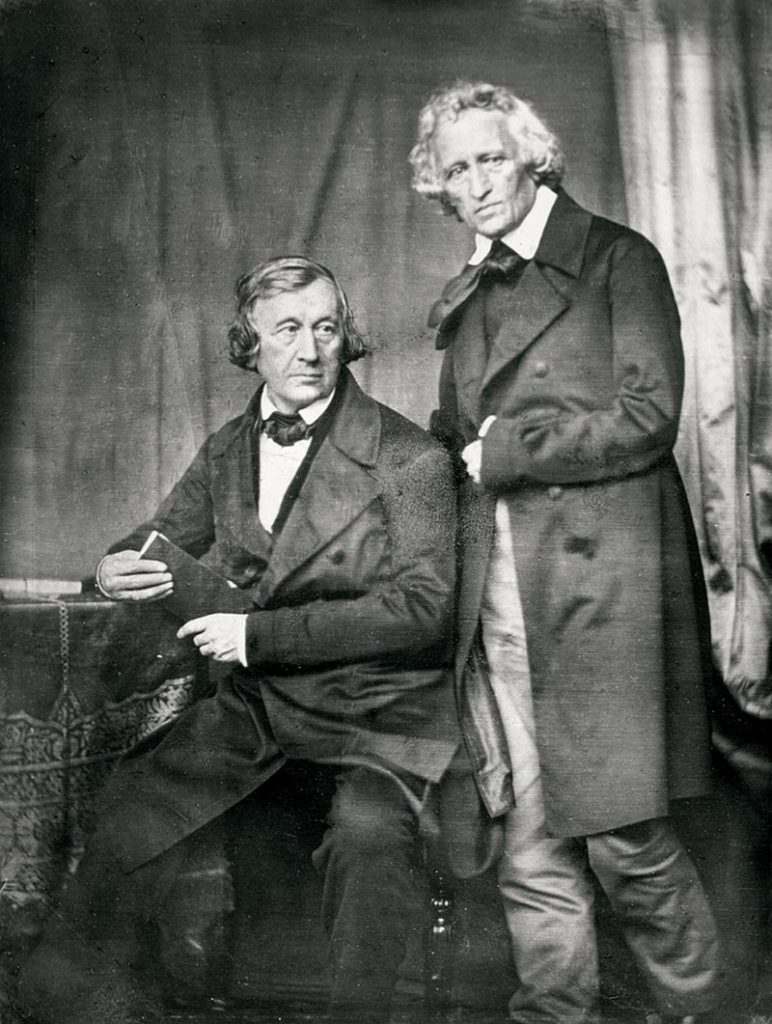
Porträt der Brüder Wilhelm und Jacob Grimm.
Foto von Hermann Blow (1804 – 1850)
